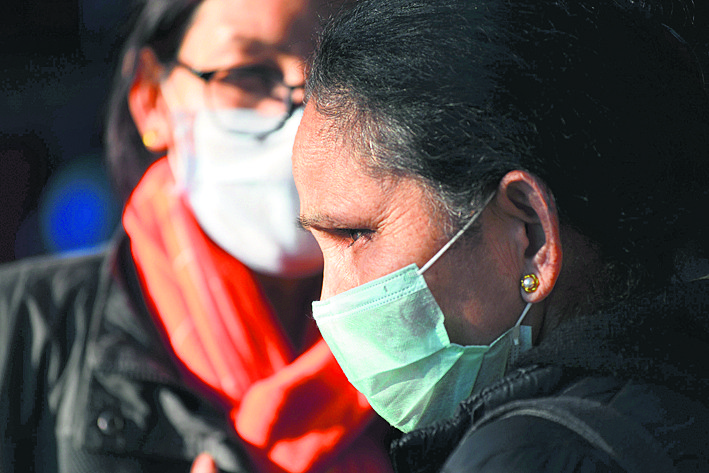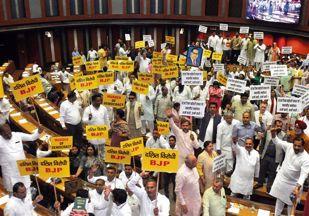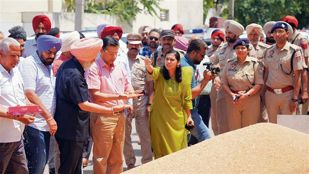
Ira Pande
Dickens’ opening lines in A Tale of Two Cities — ‘It was the best of times, it was the worst of times...’ — have haunted me ever since the tragedy of this pandemic began to unfold to bring fresh tales of horror from across the world into our lives. Yet, for every heart-wrenching account of another death, is an equally heart-warming account of how people the world over have put aside their differences to fight a challenge that respects neither race nor religion or rich and poor. We will all sink or swim together and the world that will emerge from this nightmare cannot be the same one that we were living in before it was hit by Covid-19.
Just ask yourself, who helped you when all shops shut down and when Amazon and Nature’s Basket and such e-commerce sites downed their shutters? It was your local grocer and his tiny kirana store that managed to supply you with what you need to feed your family. It was the thelawala bhaiya (not Big Bazaar) who braved police lathis to bring you vegetables and fruit. Where were all our Big Boys from tony management schools, the fat bankers and hedge fund wunderkind? Cowering in their homes or carping at the government for not giving them enough time to stockpile food and booze. When recession hits us, as it will sooner than later, these fat cats will melt away (and no one will weep for them). It was the humble government hospitals and their dedicated (and underpaid) staff that rose to the occasion. The safai karmcharis, the municipal agencies that provided us with water and electricity, the garbage collectors and the maintenance staff of high-rise complexes who stayed on the premises (away from their own families at such a stressful time) and made sure that lifts ran and we had no power outages. Even the police, reviled and mocked at each day, have been stellar in the way they have helped the aged and the sick reach hospitals and provide support to creaking supply chains.
In these difficult times, what right do we have to complain about the sameness of the food on our tables — the same aloo, gobhi, matar — when there are those who have not even a grain of rice to offer their hungry families? I do hope all of you have reached out to your absent workers and sent them money. There are heart-warming tales of langar and free kitchen being run by religious organisations (our gurdwaras leading by example), but there are equally distressing accounts of migrants being turned away by their state governments and villages after a long, exhausting trek across hostile highways. Yet, by and large, one is proud of the way we have risen to the challenge. Never renowned for its welfare network, our country has been far more efficient in handling its huge numbers of migrant workers, self-employed or daily-wagers who have suffered the most. After the initial sight of impatient crowds the day after a national lockdown was announced, I never thought we would be able to contain the enormous volume of human traffic and safely guide them into shelters and isolation centres. Is this not something to be proud of?
Of course there will be those who will point out how it could have been handled better and those who have made a profession of seeing religious motives in every action of the government, but this is not the time to say, ‘I told you so.’ We are all in this together and we have to think of solutions rather than carp incessantly. Believe me, there is great joy in keeping your house sparkling and cooking good, nourishing meals. In the absence of order-in junk food, I hope our country begins to see the need to eat healthy and spend time with children or parents. The air in Delhi (as elsewhere) is cleaner, one can hear birdsong rather than the roar of traffic and cupboards and closets are being cleared out to kill time. (I will say nothing to those who binge-watch).
I cannot resist a personal anecdote here: almost on the day the country was locked down, our Internet packed up. For two days we felt we were marooned on a desert island and my husband went about like a junkie without a fix until we managed to do some jugaad engineering to fix the router. I cannot tell you how peaceful those two days of no-Internet were. We both cleaned and cooked, played board games and actually held conversations rather than bark orders and exchange snarls. I tell you it was divine intervention to remind us what life was all about once upon a time. Long forgotten recipes came back and my husband (always house proud) polished furniture, washed the dishes, did the laundry — all skills he had before he became a sahib.
My advice to all of you suffering withdrawal symptoms of shopping is, ask yourself, ‘How much is enough?’ Do you really need to rush to every sale, buy whatever is new? Remember, in the long term, we’ll all be dead and if clothes could make a man, then every dumb fashion model would be a world leader.
Stay in your home and count your blessings. This too shall pass.
Join Whatsapp Channel of The Tribune for latest updates.




























